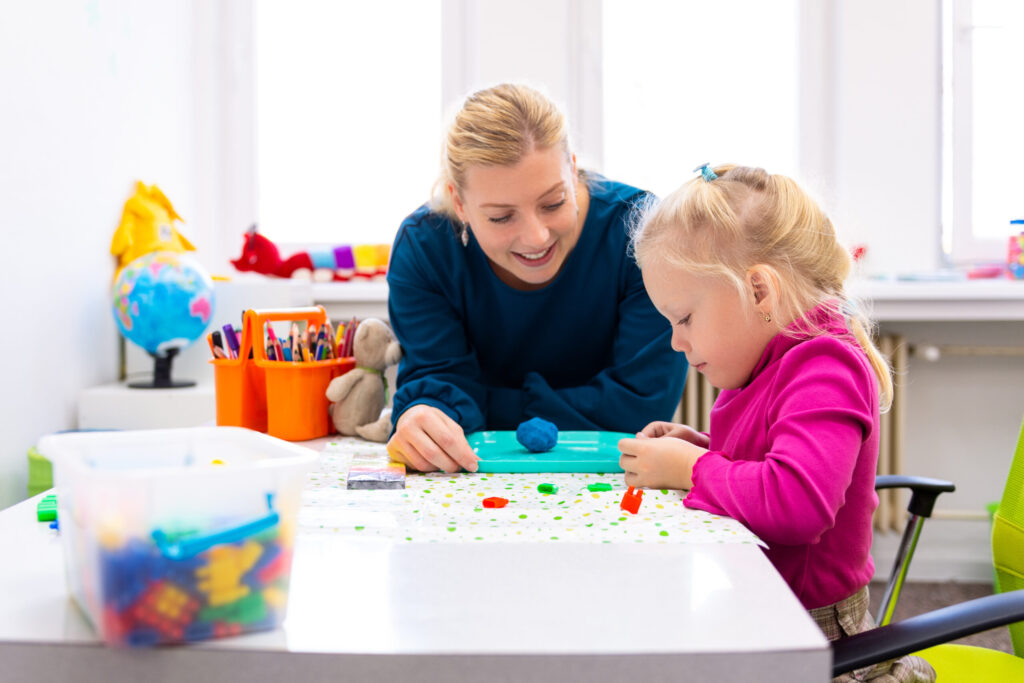Attention Deficit Disorder (ADHD) – Understanding ADHD in children and our methods of treatment

Does your child have trouble concentrating at school? Are they constantly fidgeting or can’t seem to sit still? If so, your child may have a condition known as Attention Deficit Disorder (ADHD). Evidence shows that ADHD is one of the most common disorders among children and teens, with more than 9.4 percent of U.S. children (6.1 million) between ages 2 and 17 presenting symptoms.
Youthful patients diagnosed with ADHD often struggle with memory and executive functioning in addition to attention and activity level issues. This makes it extremely harder for them to perform well in school, and can even impact their peer relationships. Fortunately, at Skills on the Hill, we have highly trained therapists who are equipped to tackle ADHD and help our patients overcome the condition.
To set up an appointment, call Skills on the Hill in Washington DC, or Arlington, VA today!
What is Attention Deficit Disorder?
ADHD is classified as a chronic condition in which patients exhibit attention difficulty, hyperactivity, and impulsiveness. Performance and social connections at home, school, and extracurricular activities can also all be affected by these problems. Unfortunately, many kids with ADHD are incorrectly diagnosed as having conduct issues. However, with proper treatment from pediatric therapy, their issues can be resolved for good.
According to studies, engaging in moderate physical activity can strengthen neurotransmitter systems, upregulate brain-derived neurotrophic factor (BDNF), and promote neurogenesis. When combined with behavioral and psychological therapy, children can successfully overcome the characteristics of ADHD.
Symptoms of ADHD in children and teenagers
Symptoms of ADHD in children and teenagers can usually be seen before the age of 6. Patients will typically display behaviors at school or while engaging in activities that involve concentration.
When it comes to ADHD, the terms “inattentiveness” and “hyperactivity” are discussed to describe symptoms. Children typically demonstrate either one of both behaviors of inattentiveness or hyperactivity/impulsiveness.
Common signs of inattentiveness are:
- having a short attention span
- Making frequent and careless mistakes in schoolwork
- being easily distracted
- Appearing forgetful
- being unable to achieve time-consuming tasks
- Frequently changing their mind about activities or tasks
- Difficulty being organized
- Unable to listen properly
Common signs of hyperactivity and impulsiveness are:
- Difficulty sitting still
- Constantly fidgeting
- Uncomfortable in quiet settings
- Being unable to concentrate on simple tasks
- Abnormal amount of physical movement
- Excessive talking
- Impulsive thinking
- Changing or interrupting conversations
Visual arts like painting and drawing or crafts such as pottery are great for kids with ADHD. Children with attention disorders do well with movement and hands-on engagement.
What can pediatric therapy do for ADHD?
Pediatric therapy has been shown to reduce stress, anxiety, and cognitive function in children struggling with ADHD. Our experienced team will utilize several techniques to support the child, as well as teach them useful coping mechanisms that they can apply during school, at home, and with peers. Overall, pediatric therapy is a fantastic way to enhance a child’s physical and emotional health, relieving them from behaviors of ADHD.
PT treatments to help attention deficit disorder
Evidence-based techniques such as massage therapy, breathing exercises, and aquatic therapy are all commonly used in pediatric therapy. These activities have been shown to reduce anxiety, stress, and muscle tension caused by ADHD.
Sometimes, our therapists will recommend peer groups. These allow children to interact under the supervision of a therapist who can provide feedback on conflict resolution and practice good social skills. By integrating therapy into a social setting, children can build skills, develop friendships, and have more fun in treatment.
Initially, your child’s pediatric therapist will perform a comprehensive assessment where he or she will analyze present behaviors in different settings. This way, the therapist can design a treatment plan that is customized to your child and their unique set of needs.
Request an appointment at Skills on the Hill today!
If your child has been displaying symptoms of ADHD, our team is here to help! We are compassionate about our youthful patients and act as a support system for you and your family. With our innovative strategies, we help children change behaviors, improve social skills, and decrease stress and anxiety, providing them with much-needed relief.
Call Skills on the Hill to make an appointment with one of our incredible therapists today!
Sources:


